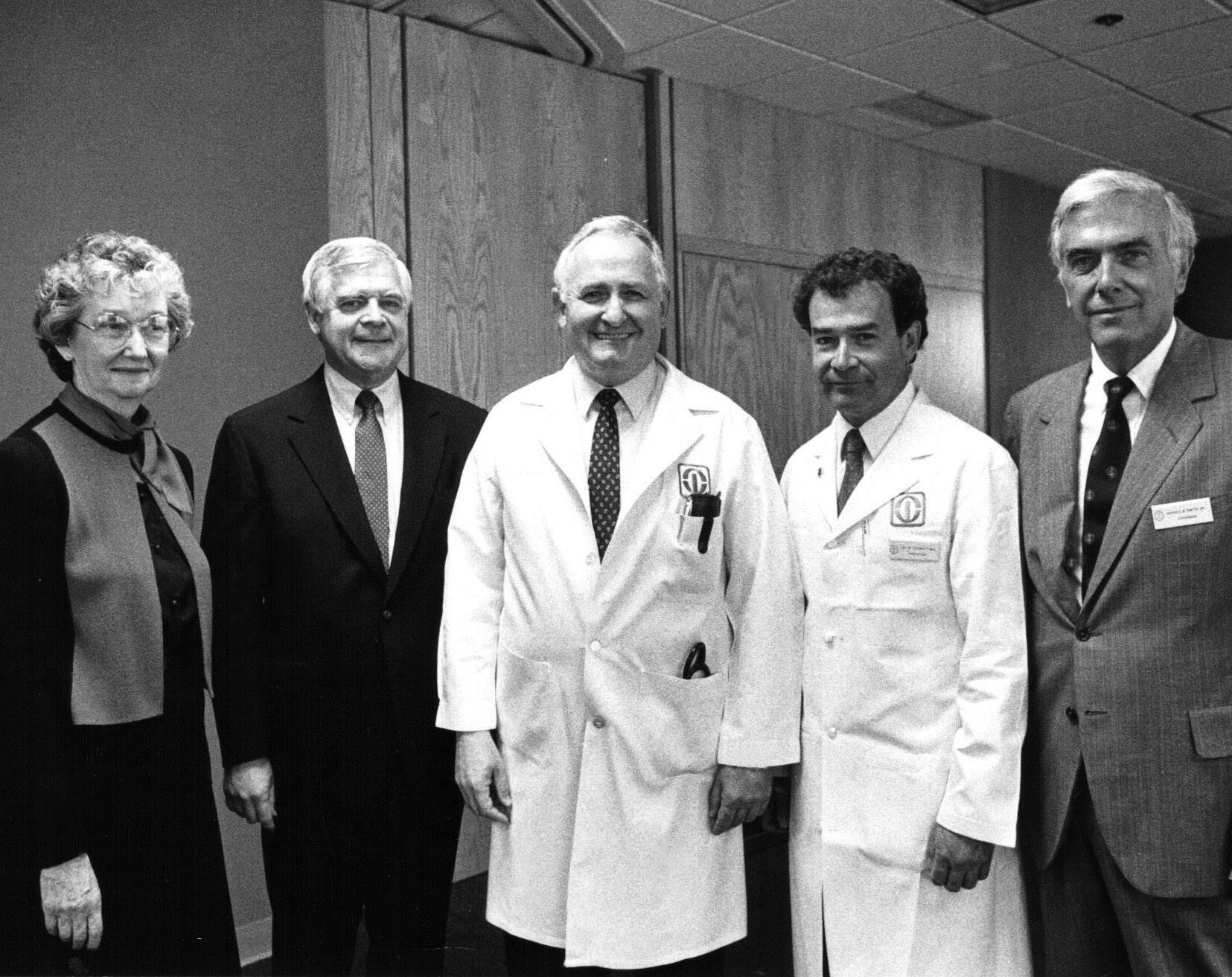
2 minute read
1970s & 80s Advancing Bone Marrow Transplantation in Chicago
J.D. Stetson Coleman and Dorothy W. Coleman, owners of Fannie May Candies, established The Coleman Foundation in 1951, making its first gift to Rush in 1973. The Thorne family purchased the candy company in 1977 and appointed John Hughes as chief executive officer. Jean D. Thorne and her eldest son, Thomas, served as trustees on the Foundation’s board.
In 1983, at the close of a meeting presenting Rush’s plans to establish Illinois’ first bone marrow transplant program, Jean shared personal news: Within the next few weeks, she would accompany Thomas to Seattle, where he would receive a bone marrow transplant from his sister.
The Coleman Foundation saw that Thomas’ experience was not an outlier. Had timing and resources been different, Rush would have been able to offer him care closer to home, where Thomas would have had his young daughter and the rest of his family by his side. No one should have to leave a major city like Chicago, losing valuable time with their loved ones, to access world-class treatment for cancer.
Driven by this conviction, the Foundation committed $3 million — then the largest single grant it its history — to seed Rush’s bone marrow transplant program and endow The Coleman-Fannie May Candies Foundation Chair of Blood and Bone Marrow Transplant (now The Coleman Foundation Chair). In recognition of this landmark gift, Rush named the Thomas Hazen Thorne Bone Marrow Transplant Center in honor of Thomas, who died of leukemia at the age of 32.
Over the next five years, The Coleman Foundation created a regional network of scientific thought leadership in bone marrow transplant, establishing endowed chairs at Loyola University Chicago, Northwestern University, the University of Chicago and Notre Dame University. The first of their annual symposiums to unite these leaders was hosted by Rush.
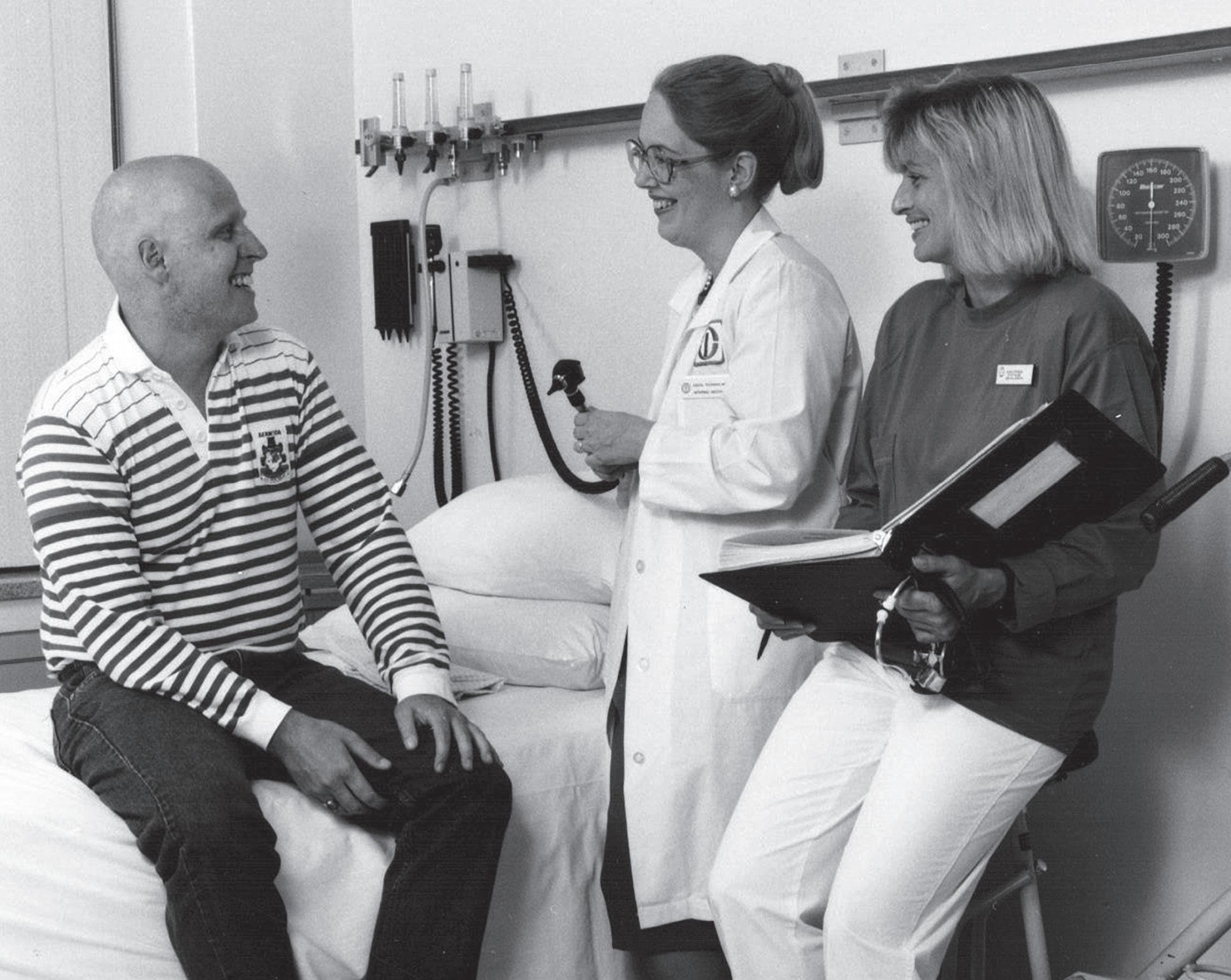

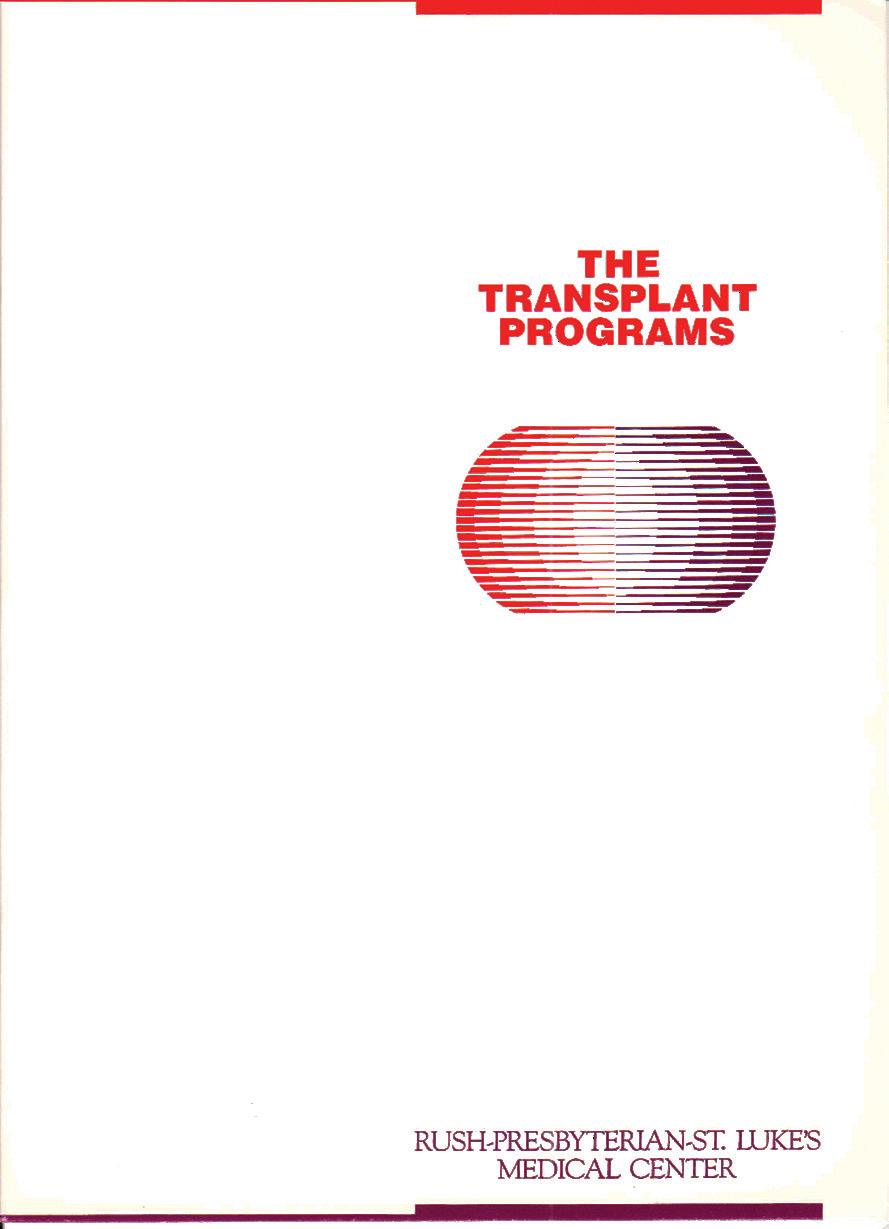
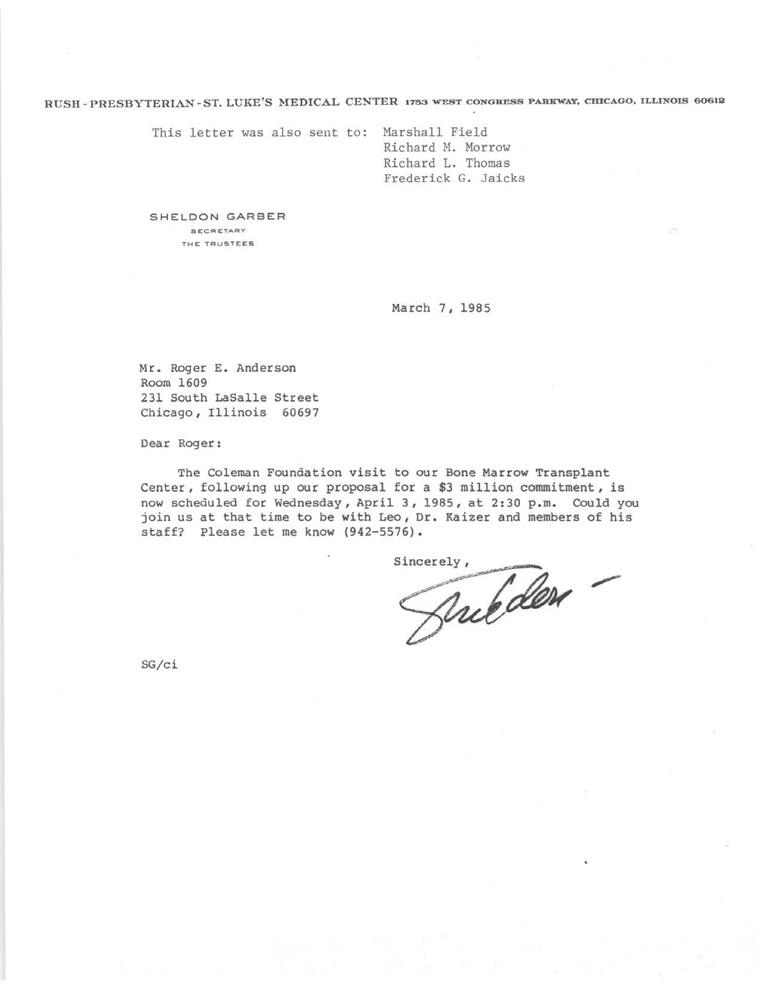
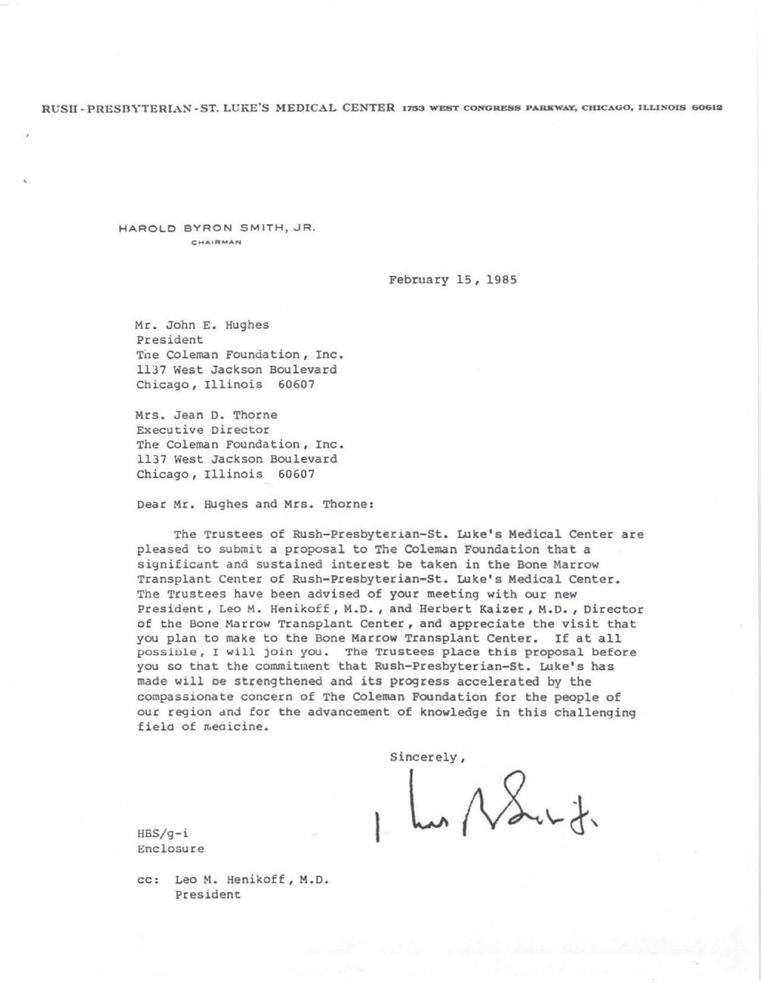

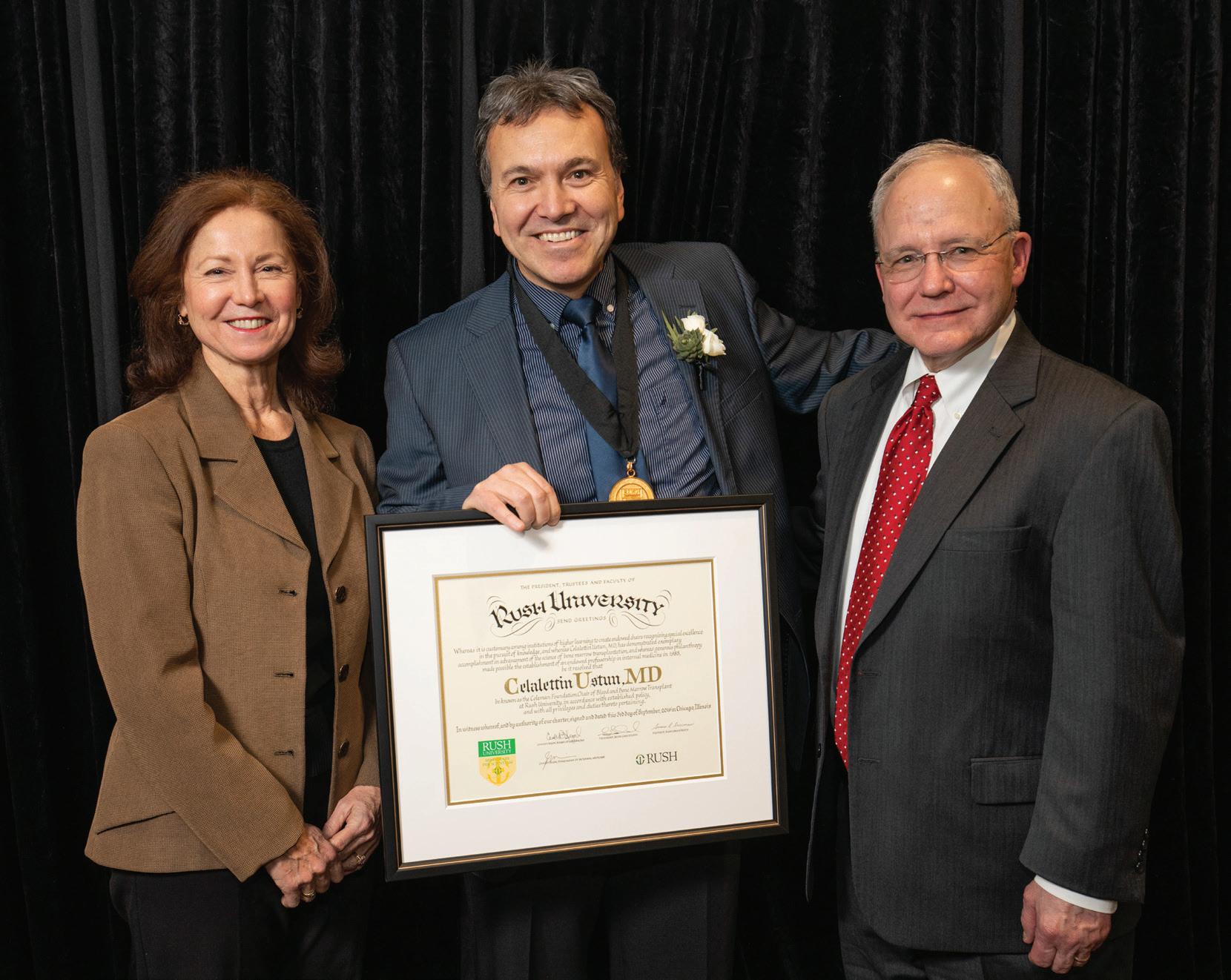
1990s
Evolving Our Partnership and Securing a Legacy
Today, Rush’s bone marrow transplant and cellular therapy program is nationally renowned. Rush is one of the first centers in Chicago to offer chimeric antigen receptor T-cell therapy (CAR T-cell therapy), the latest development in immunotherapy, and our care teams pride themselves on treating the psychosocial aspects of cancer as well as the disease itself. We would not be leading this work today without the visionary investment of Jean Thorne, John Hughes and The Coleman Foundation.
After the 1991 sale of Fannie May Candies, Mike Hennessy, who had served as the company’s chief operating officer, began his tenure as president and CEO of The Coleman Foundation. John Hughes remained active on the Foundation board for many years.

When considering new commitments, John and Mike visited with Rush physicians and hospital leaders on-site, seeking to understand not only the barriers to survival and quality of life, but the role that a grantmaker could play in finding sustainable solutions. As advances in medical sciences made once-novel cancer treatments more common and effective, Foundation leaders evaluated how to help fill other gaps in the continuum of cancer care. Mike oversaw a gradual shift to the focus on patient-centered care and quality of life that remains integral to The Coleman Foundation’s approach to this day.
Alongside Mike and John, Jean Thorne worked diligently to see Rush’s Bone Marrow Transplant Center open and then expand once more. Jean also lent her time and voice to Rush University Medical Center’s Cancer Leadership Committee, a group of local philanthropists and civic leaders who provided guidance and feedback to Rush’s leaders and trustees.
Sadly, Jean Thorne also called upon Rush’s clinical expertise. She passed away in September 1995, just seven weeks after being diagnosed with lung cancer. Rush and The Coleman Foundation commemorated her legacy with the Jean D. Thorne Family Room, offering privacy to patients and their guests within the Thomas Hazen Thorne Bone Marrow Transplant Center. These spaces have evolved to become The Coleman Foundation Bone Marrow Transplant Unit.





